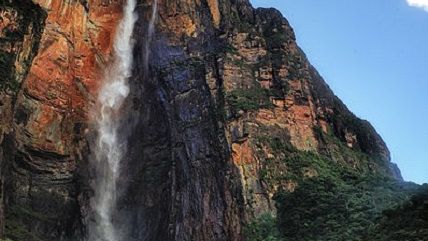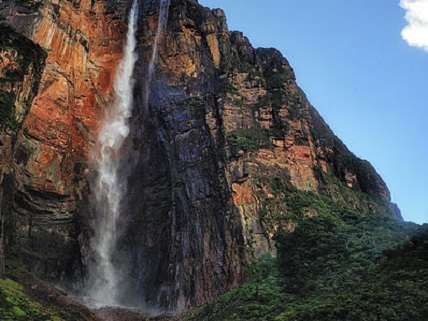Drinking Water Shortage in Venezuela


Hugo Chavez, once a darling of the Hollywood left, tried to transform Venezuela into a socialist paradise using chavismo, a Chavez-centered "top men" kind of socialism and nationalism while its president from 1999 to 2013. Less than fifteen months after his death, his successor, Nicolas Maduro, has revealed just how much star power and personality can mask failure.
Bloomberg reports on the oil-rich country's latest shortage:
Residents of the Venezuelan capital of Caracas, who already struggle to find toilet paper and deodorant, are facing a new shortage — drinking water.
The rationing of tap water amid a drought and a shortage of bottles because of currency controls are forcing people to form long lines at grocery stores and bottle shops as soon as deliveries are made. Truck drivers spend much of their day outside water dispatch centers as they try to meet demand.
As the economy he and his government are trying to control with a stranglehold collapses around them, Maduro claims his opponents are trying to kill him, an attempt to shore up support for his leadership. Such a tactic was common under Chavez as well. As Juan Nagel at Caracas Chronicles explains:
When Hugo Chávez was alive, every time there were tiffs or differences inside the government, out came the wild accusations of "magnicidio" to stir the pot. By driving a wedge between "they" (the assassins, which I guess includes all of us) and "us" (the revolutionaries), the government thinks it can consolidate its own factions. They seem to be saying "look, we may be incompetent crooks who are destroying the country, but they are worse than us … they want to kill us!"
It's a cheap ploy, and it won't work. In the face of unstoppable inflation, straws seem to be the only thing the government has to grasp on to.
The worst part is that some chavistas will fall for this. They have lost the capacity to ask themselves why the government claims an assassination has been thwarted and yet nobody is in prison.
The ability of central planning to turn abundance (Venezuela is water-rich, too) into scarcity is unrivaled, despite claims by its advocates that actually allowing suppliers and consumers to buy and sell in free markets ("capitalism") is the true culprit. Yet the leaders of planned economies can often rely on this delusion, and the emotional reactions they can elicit by demonizing capitalism and their opponents, to deny economic reality.
